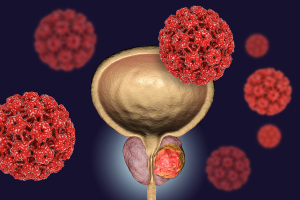by
Lisa Chamoff, Contributing Reporter | October 04, 2019
Results from a trial of a PET/CT scan using fluciclovine F 18 PET imaging showed that 64 percent of patients with suspected recurrent prostate cancer had a change in management following the scan.
The results of the trial were presented last month at the ASTRO annual meeting in Chicago.
Called the FALCON trial, it was jointly funded by Innovate UK and Blue Earth Diagnostics and was conducted at six UK institutions.




Ad Statistics
Times Displayed: 19625
Times Visited: 367 Stay up to date with the latest training to fix, troubleshoot, and maintain your critical care devices. GE HealthCare offers multiple training formats to empower teams and expand knowledge, saving you time and money
The trial used a PET/CT with fluciclovine F 18 injection, or Axumin, in men with suspected prostate cancer recurrence based on elevated blood levels of prostate specific antigen (PSA) following prior treatment.
After the exam, 65 percent of the changes were considered major changes that led to a change in treatment modality.
“The most widely available scans for recurrent prostate cancer remain conventional imaging methods — isotope bone scan and CT/MRI scans,” Dr. David Bottomley, a consultant clinical oncologist at St. James Institute of Oncology in Leeds, UK, told HCB News. “Axumin demonstrates part of tumor metabolism, specifically, amino acid uptake, and therefore may be sensitive in showing recurrent prostate cancer where these conventional imaging methods do not.”
Axumin is already approved for use in the U.S. and Europe.
“Positive steps toward widespread use would be through additional consideration in national/professional society guidelines, and funding of its use by relevant national health systems,” Bottomley said. “The results we have demonstrated in FALCON are important to inform these steps.”

